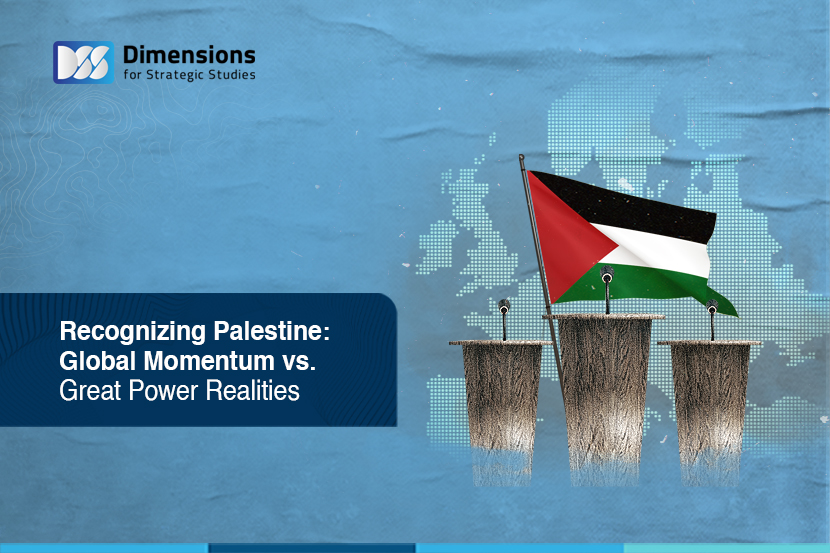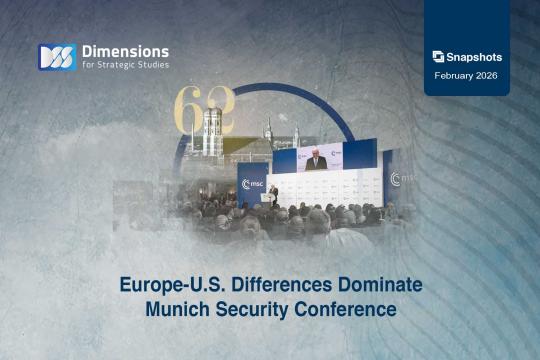
Recognizing Palestine: Global Momentum vs. Great Power Realities
2024-06-255022 view
Introduction
The events of the morning of October 7 sparked a shockwave that resonated around the world. The attack on Israeli population centers near the Gaza Strip, by Hamas and other Palestinian factions, was unprecedented in the history of the Israeli-Palestinian conflict. Israel’s response, too, has been unprecedented: an orgy of killing and destruction in Gaza that has gone far beyond any reasonable reaction.
However, even as Israel has continued to kill Palestinians in the Gaza Strip and the West Bank, the Palestinian cause has been picking up momentum around the world, both in the corridors of politics and in the streets. Efforts to achieve Palestinian rights have been revived again both at the official and grass-roots levels, after years of stagnation both in the Arab world and beyond.
Over the course of Israel’s war, a growing number of governments have recognized or declared their readiness to recognize the State of Palestine, creating political and moral momentum at international fora and at the grass-roots level. To date, since October 7, the State of Palestine has been recognized by Spain, Norway, Ireland and Slovenia. Prior to that, only seven of the European Union’s 27 states had recognized it: five from the former eastern bloc—Bulgaria, Czech Republic, Hungary, Poland and Romania—had done so in 1988, along with Cyprus. Sweden followed suit in 2014, becoming the first state in Western Europe to do so.
The recognitions by four new European states brings to 147 the number of states that recognize the State of Palestine, out of 193 members of the United Nations General Assembly. This includes most of the countries of the global south, plus China, Russia and India. Notably, Palestine is not a full member at the UN but an observer state, a status approved by a General Assembly resolution in November 2012.
This study examines the new states that have recognized the State of Palestine, examining the context and circumstances of this recognition as well as its potential impact for the Palestinian cause within Europe and internationally.
Conclusion
Announcements by several states that they would recognize the State of Palestine undoubtedly represent a victory for the Palestinian cause, adding to the momentum and raising the profile of the issue on the international stage, both at the official and popular levels. This in itself could help bring moral and political impetus to bear in support of the internationally recognized rights of the Palestinian people.
The impact of states’ recognition of Palestine varies according their respective international clout. For example, Spain’s importance lies in its position in Europe and its economic and cultural weight, while Norway—although it is not a member of the European Union—is a powerful country and a global example on many metrics of democracy and development. It is also unusual as a close ally of Israel that has nevertheless declared its recognition of the State of Palestine.
Yet despite these impacts, whether direct or indirect, this momentum collides with the international balance of power and the positions of major powers. Regardless of how many states recognize Palestine, any response to the legitimate rights of the Palestinians or pressure on Israel to abide by international law can only arrive via two pathways: the United States, and the UN Security Council—at which Washington has a veto.
Thus, as long as the current global order and Security Council rules remain in place, all these gains will have limited impact on the future of the Palestinian state, unless Washington acquiesces. As long as Washington refuses to accept anything that is not to Israel’s liking, the situation in the corridors of power is unlikely to change.
Report in Arabic here: (Click here)





